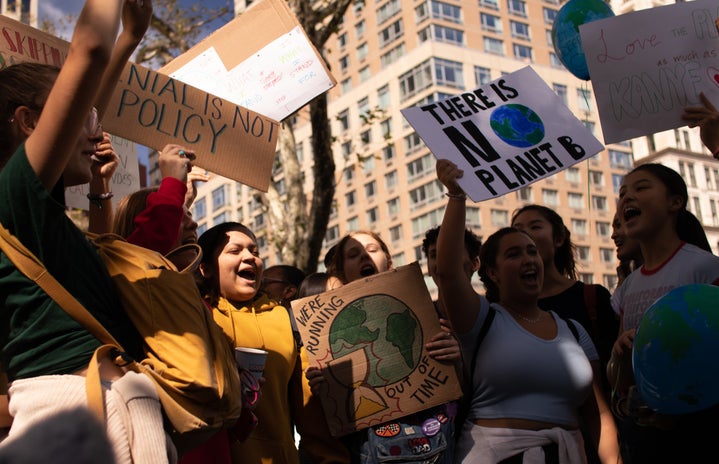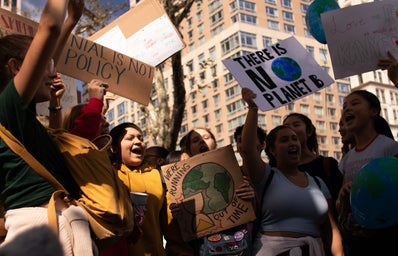If you’ve been keeping up with The United States’ changes in environmental policies, you will have noticed a decreased in in decisions that help protect America’s land, water, air and wildlife. In June of 2017, the U.S. pulled out of Paris Climate Agreement, the US EPA loosened regulations on toxic air pollution and Trump issued an executive order that called for an increase in logging on public land. These are just some of the recent changes that Trump’s administration has enacted that harm the environment for the benefit of large corporations. While some argue that sacrificing the environment to strengthen the economy is a good exchange, it doesn’t take into account that protecting the environment actually accumulates a larger gain.
Climate change is happening, and at the rate the world is reacting to it, we won’t be able to stop it. While few people may come out of this with the lives barely changed, others will face severe consequences of the world’s actions. Those most affected are and will continue to be women, and it’s why we as feminists most add protecting the environment as a part of our agenda.
Why does it affect women more than men?
A total of 1.3 billion people in low- and middle-income countries live below the poverty line, and 70 percent of them are women. In times of natural disasters, money is needed to get the medical help, shelter and food needed when there isn’t enough government help available. It’s especially important here to acknowledge that women with a low socio-economic status, whose livelihoods are dependent on the land, face the impacts of climate change the most. Those who farm can face unreliable rainfall, landslides and drought that can end their ability to earn income. Their partners may have to travel to different areas to obtain necessary goods or work that put women in a more vulnerable position because then they rely even heavier on men for care.
Women are at higher risk from the impacts of climate change in situations of poverty because of health impacts and childcare, which puts them at a greater disadvantage than men. Women have certain nutritional needs during pregnancy that are hard to obtain because of food insecurity and food discrimination that happens when flooding or draught occurs due to extreme changes with the climate. They also may lack menstrual products that are necessary for their sanitation.
During disasters women are at a physical risk, too. They are less likely to know life-saving skills such as swimming and are more at risk of exploitation and human trafficking. Climate change is a major contributor to migration and displacement. Women and girls are likely to move, and they could fall victim to trafficking and forced labor because they are the most poor and vulnerable in these situations. In human trafficking, women are likely to contact HIV/AIDS.
What needs to change?
We need big changes to our environmental policies. One policy that has been created to tackle climate change is the Green New Deal. Introduced by Representative Alexandria Ocasio-Cortez of New York and Senator Edward J. Markey of Massachusetts, the proposal focuses on getting the United States to ease off of fossil fuels and decrease greenhouse gas emissions while providing high-paying jobs in clean energy industries. While nothing in the resolution would become law, there is still a precedent that hopefully would give the house and senate more room to pass regulations to protect the environment and in turn, women. This is a policy that is really about getting more environmentally friendly policies passed. For the Green New Deal to get passed, we must vote for officials who support it and similar policies. In times where there are no elections going on, we must call on our representatives to vote for the policy.
Socioeconomically disadvantaged women are the most at risk by climate change, yet they have extraordinarily little say in the laws that are passed involving environment. It’s unfair that a large portion of the earth’s population is affected by matters they have little control over. We must support women running for office and who are working in STEM fields. If they have the knowledge and power to make change, then they can have control over their future.


